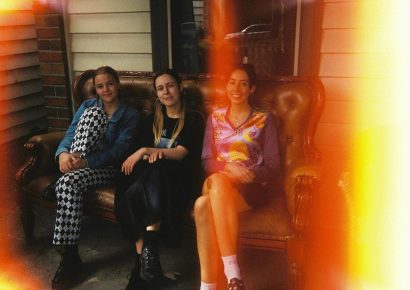The 1970s and early 1980s were a time of enormous creativity in pop and rock music in Australia.
Television shows such as Countdown, Nightmoves and Sound Unlimited (later renamed Sounds) provided a platform for many local acts to enter our loungerooms on a weekly basis. Bands such as Skyhooks, Sherbet, and Cold Chisel were just a few to dominate TV and radio with hit after hit. But they weren’t the only acts finding some success. There were many excellent singles and albums by lesser-known bands and artists, who honed their skills working up and down the country on the highly competitive pub and club circuit.
Though largely forgotten and long discarded from mainstream radio playlists, many of these songs stand the test of time and deserve a re-hearing. They are all available online in one form or another. I suggest you dive in and have a look, if only to jog nostalgic memories of an era that pre-dated Apple Music and YouTube.
Over the course of many weeks, I’ll be running through countless (almost) forgotten Australian classics. Here are a few of my favourites to start…
‘Look After Yourself’ – Stars (1977)
Highest Chart Position: 30 (Kent Music Report)
Stars – Australia’s self-described “Rock and Roll Cowboys” – were a country-rock band that formed in
Adelaide, South Australia in 1975, and moved to Melbourne in 1976. The band comprised lead singer Mick Pealing, guitarist and chief songwriter Andrew Durant, guitarist and vocalist Malcolm Eastick, drummer Glyn Dowding, and a succession of bassists which began with Graham Thompson and at one stage included the Little River Band’s Roger McLachlan.
Stars made regular appearances on the ABC’s megalithic Sunday night institution Countdown.
Look After Yourself, from their debut album Paradise, was their biggest hit single. Charting in December 1977 and later peaking at 30, the song is a word of advice from a concerned friend: “You better look after yourself / cos nothing stays the same/ If you can’t run with the tide / you’ve got yourself to blame”.
Their next biggest hit was The Mighty Rock, which reached No 47, also in 1977.
The band’s last performance was on 5 November 1979, shortly after Andrew Durant was diagnosed with cancer. He died, aged only 25, in May 1980. A memorial fundraiser concert was organized and spawned the successful Andrew Durant Memorial Concert album, which reached No 8 in 1981.
‘She Taught Me How to Love Again’ – Bjerre (1977)
Highest Chart Position: 31
Lindsay Bjerre was the lead singer and guitarist of 1960s Newcastle psychedelic-surf-rock band Tamam Shud. The band released two albums in the late ‘60s and early ‘70s before dissolving in 1973, citing a fear of musical stagnation, disappointment at being denied the opportunity to record a third album, and management difficulties. They reformed in 1993 and continue to perform and record to this day.
In 1977 Lindsay Bjerre adopted a distinctive and somewhat effete French/ Belgian character, which he simply called “Bjerre”. He can be seen in a beach scene on the album cover of his 1977 solo album Stealing The Hours, wearing a beret and knee-length culottes and looking mildly pleased with himself, as a well-dressed young woman reclines to his left. This song was the album’s first single.
Like so many hits of this era, it had good coverage on Countdown, no doubt with the enthusiastic support of the show’s ebullient talent coordinator Ian “Molly” Meldrum.
The song’s tone is gentle and whimsical. A lightly-phased electric guitar strums the introduction to Bjerre’s amusing and reflective opening lines: “We met by accident / thanks to the government / I was on the dole / and living it free / She took me in and she taught me how to love again”. The melody is catchy, the playing understated. It is a great pop song!
Tamam Shud, with Lindsay Bjerre on guitar and vocals, recently played Bluesfest in Byron Bay.
‘Where Were You (When I Needed Somebody)’ – Finch (1978)
Highest Chart Position: 25 (14 in Melbourne)
Finch was a hard-rock band that began playing in Sydney in 1972 under the name Stillwater. They changed their name to Finch in 1973, and moved to Melbourne in 1976.
The original members were Owen Orford on lead vocals, Peter McFarlane on drums, Bob Spencer on lead guitar and Tony Strain on bass. By the time the band produced this single from their 1978 album Nothing to Hide, they had been through numerous lineup changes, most notably Bob Spencer to Skyhooks to replace Red Symons in March 1977. Orford and McFarlane are joined here by Mark Evans (ex AC/DC) on bass, Graham Kennedy on guitar and vocals, and David Hinds on guitar and vocals.
The song is a classic hard-edged pub rock ballad, beginning gently with a lilting strummed acoustic guitar melody which is soon joined dramatically by twin electric guitars on overdrive, bass, and drums.
The official film clip for the song is easily found on YouTube and is worth a look. Filmed partly on-site in a wrecking yard, and partly in a studio, a highlight is the amusing sight of lead singer Owen Orford carefully climbing down from atop a stack of car wrecks. Where Bon Scott or Shirley Strachan might have leaped dramatically to earth, Orford takes a much more tentative and un-rock-star approach.
The band signed with CBS’ American subsidiary label Portrait Records in 1978, changing their name to Contraband to avoid a name clash with an existing Dutch band. They disbanded in 1979 after Portrait Records dropped them.
“Where were you when…?”, Finch/Contraband may well have asked their record label at the time.
Next time: Supernaut; La De Das; The Ferrets…







